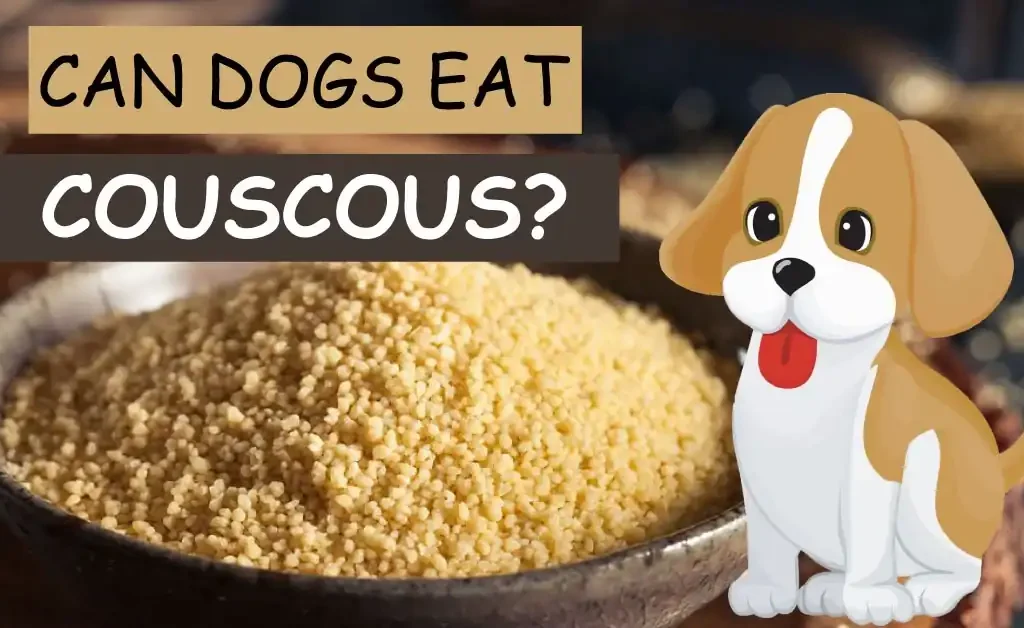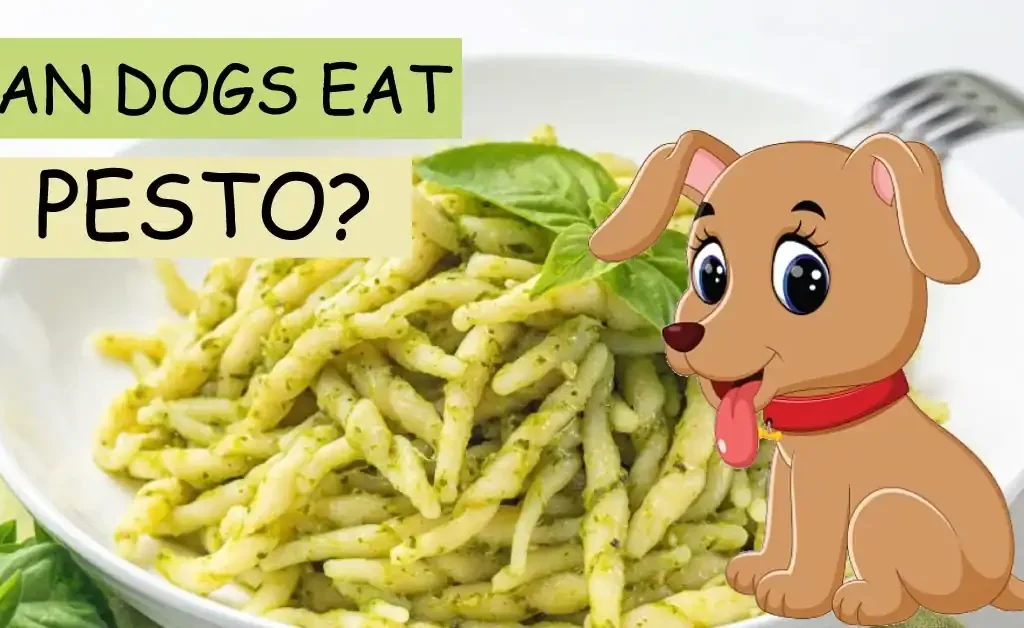As a pet owner, you must give superior nutrition to your dogs. You may wonder, “Can dogs eat Couscous?” Or is it a good option for feeding your dog? This blog will examine whether dogs can eat Couscous and what you should know before including it in their diet.
What Exactly is Couscous?
Couscous is a tiny, spherical semolina wheat pasta. It’s a common element in Middle Eastern and North African cooking, frequently used as a base for stews and salads. Couscous’ origins are unknown. However, it originated from Berber tribes in what is now Morocco, Algeria, and Tunisia. Other cultures later adopted it, spreading throughout the Mediterranean and beyond. Couscous is high in complex carbs, protein, fiber, vitamins, and minerals.
Can Dogs Eat Couscous? Is it safe?
Yes, dogs can consume Couscous in moderation. Is Couscous good for dogs? Couscous is a safe and healthful alternative to traditional dog food or treats when used in moderation. Couscous has various health benefits for dogs. It contains fiber, which aids digestion and promotes healthy bowel movements. Couscous is also abundant in complex carbs, giving your dog energy all day. Its less fat and calories make it an excellent choice for overweight or obese dogs.
How to Prepare Couscous for Dogs?
When preparing Couscous for a dog’s diet, consider offering it in moderation and as part of a balanced diet. It must not be their sole source of sustenance. Here’s a step-by-step tutorial for making Couscous for dogs.
Ingredients and Tools
- Plain Couscous
- Water or a low-sodium chicken/vegetable broth (avoid bouillon cubes, which can be rich in sodium)
- Cup for measuring
- A saucepan or a pot
- Fluffing the Couscous with a fork
- Dog-friendly serving bowl
Preparations
- To determine the proper Couscous-to-water ratio, 1 part Couscous to 1.5 parts liquid. Adjust the amount per size of your dog’s portion. Combine 1/4 cup dry and 3/8 cup liquid to make half a cup of cooked Couscous.
- Bring the measured liquid (water or broth) to a boil in the saucepan or pot.
- Add the dry Couscous once the liquid is boiling and stir briefly to incorporate. Remove from the stove.
- Cover it and leave for 5 minutes. The Couscous will absorb the liquid and soften and become fluffy.
- After resting, remove the lid and fluff with a fork, breaking up any clumps that may have formed. This process ensures a consistent texture.
- Allow the Couscous to cool completely before offering it to your dog. High temperatures might be uncomfortable and even burn their mouth.
- Calculate an adequate portion of cooked Couscous based on your dog’s size and dietary requirements. Remember that it should only constitute a minor amount of their meal.
- Add tiny amounts of dog-friendly items such as cooked vegetables (e.g., carrots, peas, or green beans) or lean, unseasoned meat if preferred. However, these additives must be in moderation and not include dangerous chemicals.
- Refrigerate remaining in an airtight container for up to three days.
Precautions While Feeding Couscous to Dogs
Is Couscous poisonous to dogs? While Couscous is generally healthy for dogs, you should take precautions while feeding it to your canine companion. Introduce your dog’s diet gradually and in lesser amounts, as the digestive system takes time to acclimatize to the new diet. Follow the steps given below;
Seek a Veterinarian
Talking with a veterinarian before modifying your dog’s food is always a good idea. They can offer advice tailored to your dog’s needs, considering age, breed, weight, and any underlying health concerns.
Plain Couscous
Can dogs eat Couscous with spices? Choose plain, unseasoned Couscous with no added salt, herbs, or flavorings. Garlic and onion, for example, can be poisonous to dogs.
Portion Control
Couscous must only be served as a side dish or as an occasional treat to your dog. Keep it only 10% of their total daily calorie consumption.
Allergies and Sensitivities
Some canines, including Couscous, may have allergies or sensitivities to grains. If your dog experiences undesired results, like digestive disorders or skin problems, stop giving Couscous and visit your veterinarian.
Can Dogs Eat Couscous in Different Flavors?
Is Couscous good for dogs? Couscous comes in various flavors and variations, but it’s vital to remember that dogs’ nutritional needs differ from those of people. While some flavors and variations may suit dogs, evaluating their overall health and speaking with a veterinarian before introducing new flavors or ingredients is essential. Here are a few Couscous variations that are good for a dog’s health:
Plain Couscous
It is the most basic and widely accessible variety of Couscous. It’s created simply using semolina wheat and water. Plain Couscous is generally safe for dogs if no spices, salt, or seasoning are applied.
Whole Wheat Couscous
Whole wheat Couscous preserves more of the grain’s natural nutrients and fiber than conventional Couscous. It has a higher nutritional content and is a better dog choice. If your pet is allergic to wheat or grains, avoid this.
Vegetable or Herb-Infused Couscous
Some manufacturers sell vegetable or herb-infused Couscous flavored with carrots, spinach, or herbs. While these flavors may sound appealing, checking the ingredient list is critical. Check for dangerous ingredients such as onions, garlic, or excessive sodium, which can be toxic to dogs.
Organic or Gluten-Free Couscous
Organic Couscous is manufactured from organic wheat without synthetic pesticides or fertilizers. Gluten-free Couscous is produced from grains such as quinoa or rice. Some dogs require a gluten-free diet, which should be explored with your veterinarian.
Always buy plain and unseasoned Couscous for your dog, with no extra spices, salt, or artificial flavorings. It’s also a good idea to avoid Couscous blends that contain potentially dangerous elements like onions, garlic, or high sodium levels.
Remember that Couscous should only be a minor component of your dog’s diet. It should be used as a treat on rare occasions or as an addition to their everyday balanced meals. Most of their nourishment should come from complete and balanced dog food that is age, breed, and health appropriate.
Can dogs eat Couscous in different flavors? Consultation with a veterinarian is required to ensure that the variety and taste of Couscous you choose are compatible with your dog’s unique dietary needs and overall health.
Couscous Substitutes for Dogs
Can dogs eat Couscous substitutes? While Couscous can be a nutritious supplement to a dog’s diet, it is not required. If you prefer not to feed Couscous, various alternatives can provide similar nutritional benefits. Here are several Couscous alternatives:
Quinoa
Quinoa is a gluten-free grain with protein, fiber, and essential vitamins and minerals. It’s a great source of plant-based protein that dogs can readily digest. Quinoa may be cooked in the same manner as Couscous and can be used in any dish.
Brown Rice
Another grain that can be used instead of Couscous is brown rice. It contains carbs, fiber, magnesium, and selenium. Brown rice is simple and can be served plain or paired with other healthful components such as sautéed veggies or lean protein.
Sweet Potatoes
Sweet potatoes are a nutritious and tasty alternative to Couscous. They are high in antioxidants, vitamins, and fiber, making them an excellent dog food. Sweet potatoes can be boiled or roasted before being mashed or cubed and served as a nutritious side dish or an ingredient in a homemade dog food recipe.
Pumpkin
Pumpkin is a nutrient-dense food with fiber and low in calories. It contains vitamins and minerals, including beta-carotene, potassium, and magnesium. Pumpkin can be boiled or roasted before being pureed or cubed and used in place of Couscous. It is used as a healthy topping for kibble or as an element in homemade dog treats.
Barley
Barley is a sturdy and nutritious grain high in fiber, protein, and important minerals. It’s a low-fat carbohydrate that can be used in place of Couscous in various dishes. Cooked barley can be served simply or combined with other healthful foods such as vegetables and lean protein.
To answer,” Can dogs eat Couscous?” remember their specific nutritional needs, allergies, and preferences. To ensure your dog receives a balanced and complete diet, always speak with a veterinarian before making any significant changes to their diet.
Can We Use Couscous for Dog Diarrhea Treatment?
Can dogs eat Couscous to treat diarrhea? It is not usually advised as a remedy for dog diarrhea. While it is a bland diet that some dogs may find easier to digest, there are alternative, more effective solutions to treat diarrhea in dogs.
When a dog develops diarrhea, it is critical to determine the underlying reason and treat it appropriately. Dietary errors, food allergies, intestinal parasites, bacterial or viral infections, and underlying health issues are common causes of diarrhea in dogs. If your dog has diarrhea, consult a veterinarian to determine the reason and the best therapy.
A veterinarian may recommend a temporary food change in mild cases rather than Couscous for dog diarrhea. This frequently entails feeding a plain, readily digested food. Boiling white rice and lean chicken (no seasonings) constitute the typical bland diet. This combination contains carbs that are easily absorbed, as well as lean protein.
Rice is commonly favored over Couscous, is easier to digest, and has a higher fiber level, which can help firm up the stools. Conversely, Couscous is a form of pasta produced from semolina wheat that may aggravate diarrhea in dogs with grain sensitivity or allergies.
Listening to your veterinarian’s recommendations is critical when treating your dog’s diarrhea.
Wrap-Up
Can dogs eat Couscous? Can we feed guava or chestnuts? It is difficult to mark any statement without scientific evidence of this combo’s safety. If you want to add new flavors, do it gradually and seek his reactions. Consulting a veterinarian is always the best choice.
Frequently Asked Questions (FAQs)
Q: Can dogs eat Couscous 4 times a day?
A: Doses vary depending on the physiological needs of each dog. It also depends on their health and allergic conditions.
Q: Where can I get Couscous for my dog?
A: Couscous is frequently available in every departmental store and online market. Check the reputation of the owner before placing your order.
Q: Does Couscous help in controlling hair loss in dogs?
A: It is full of nutrition but not specifically used to treat hair loss in dogs. However, it helps in maintaining a healthy coat and minimizes hair fall.
Also, Check:




